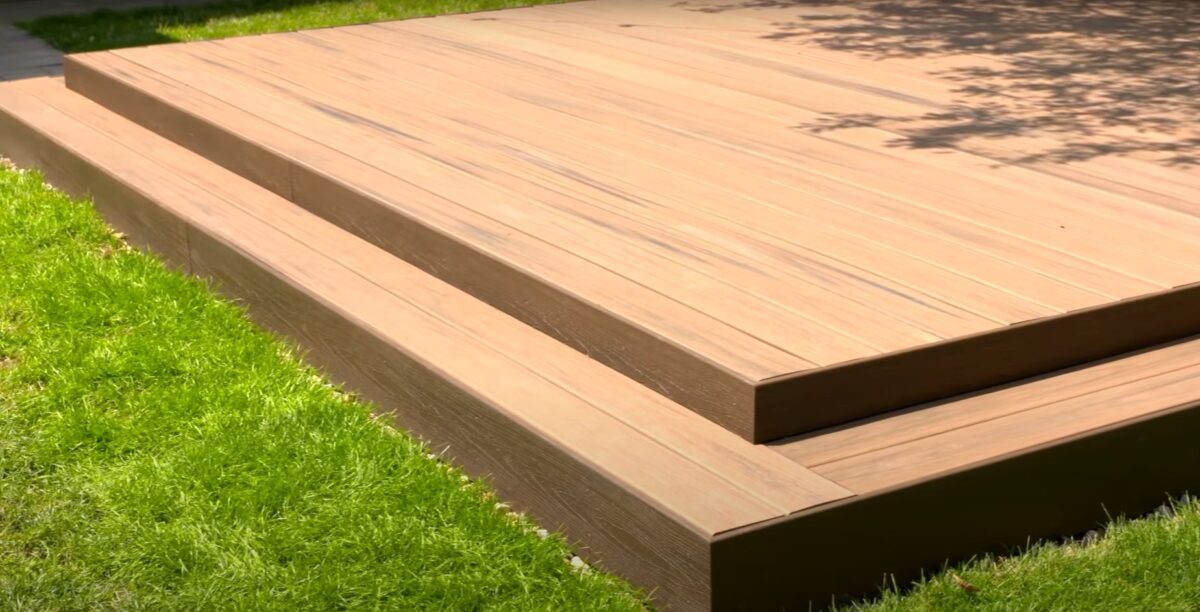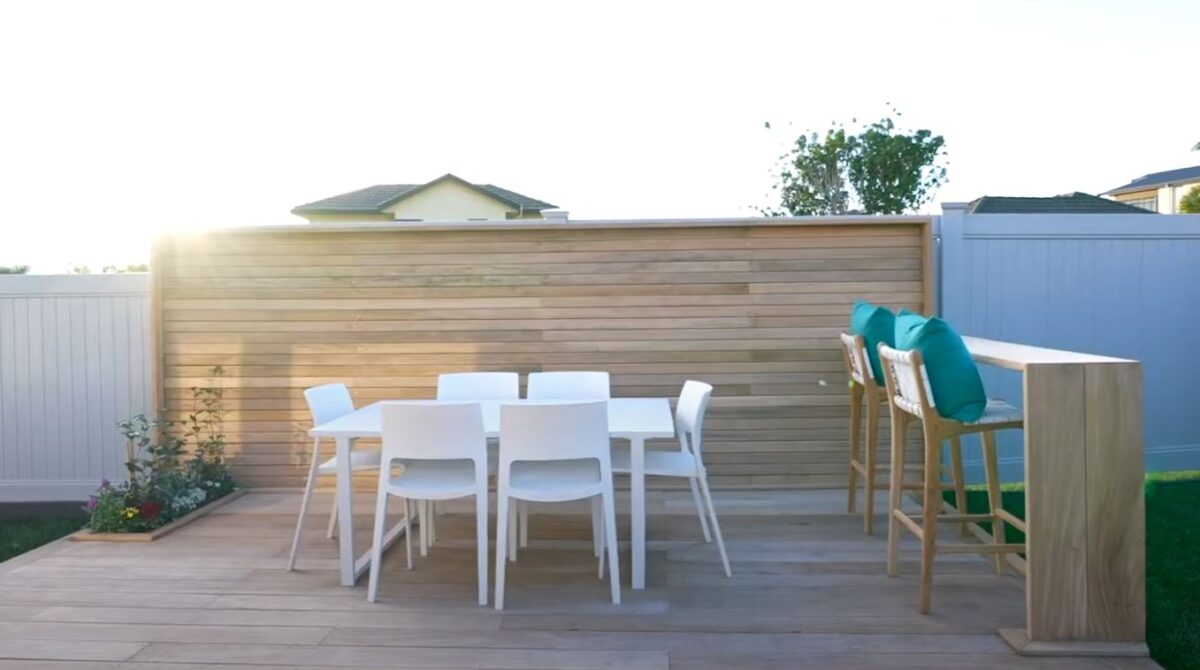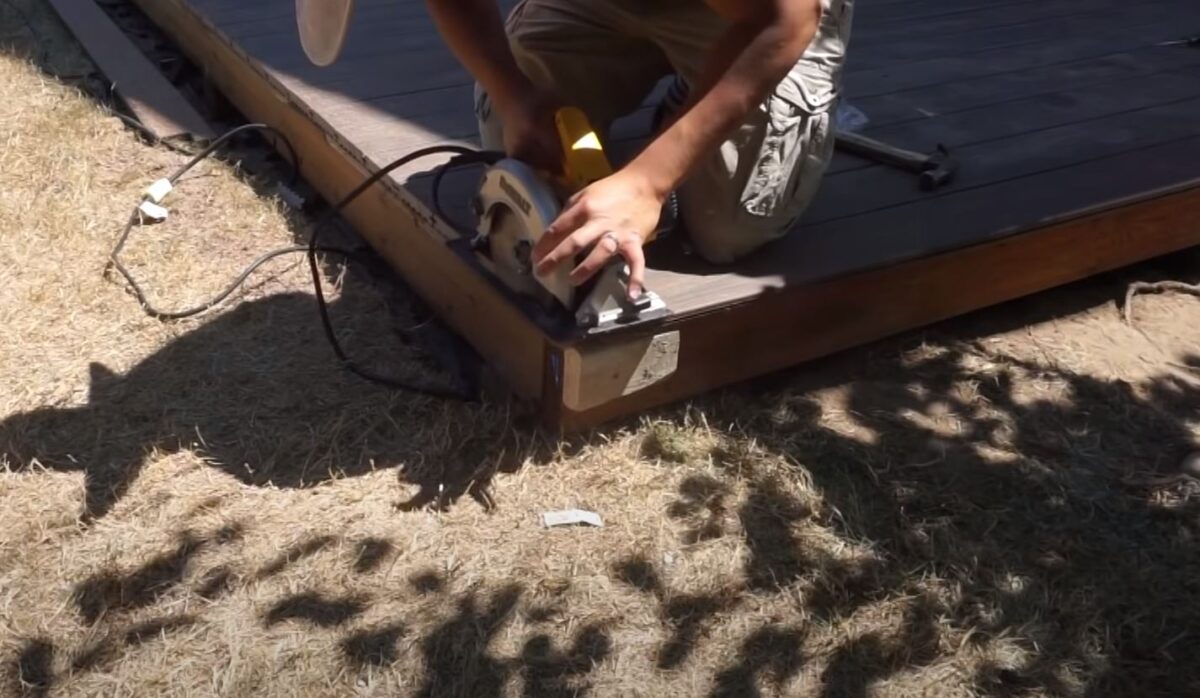Floating Decks: Can They Support a Hot Tub or Gazebo?
Understanding Floating Decks
Before diving into the specifics, let’s first define a floating deck. Unlike a traditional deck, which is attached to a home or building, a floating deck sits on the ground and is not anchored to any structure. Typically constructed with a series of deck blocks, it’s a popular choice in places like Auckland, given the flexibility in design and ease of installation.
Load-bearing Capacity: A Critical Factor
One of the foremost concerns with floating decks, especially in areas such as Milford and Hobsonville, is their load-bearing capacity. To determine if a floating deck can support a heavy object like a hot tub or gazebo, it’s essential to consider the total weight of the item, the weight distribution, and the deck’s foundational support.
Hot Tubs: A Weighty Consideration
A standard hot tub, when filled with water and occupants, can weigh several tonnes. Here are a few points to consider:
- Distribution of Weight: Hot tubs have even weight distribution due to the water, but the overall weight might exceed the floating deck’s capacity.
- Deck Blocks: The foundational deck blocks should be placed strategically to handle the hot tub’s weight, ensuring there’s no risk of sinking or instability.
- Safety Considerations: An unstable hot tub poses significant risks, including potential injuries and damage to the deck and tub.
Gazebos: Lightweight but Wind-prone
Gazebos, in contrast to hot tubs, are relatively lightweight. However, they come with their own set of challenges:
- Wind Resistance: In areas prone to strong winds, a gazebo on a floating deck might act like a sail, leading to potential tipping or damage.
- Anchoring: Secure anchoring is crucial. Consider using weight bags or specific gazebo footings to add stability.
Health and Safety Concerns
When considering adding a structure like a hot tub or gazebo to a floating deck, the health and safety of the occupants should be paramount. Here’s what to keep in mind:
- Regular Inspections: It’s advisable for homeowners to routinely inspect the deck for any signs of wear, tear, or instability.
- Professional Guidance: Engaging with professional deck builders, such as Quality Fencing Auckland, ensures a well-constructed, safe deck tailored to the specific needs of the homeowner.
Alternatives to Consider
Not sure if a floating deck is the right choice for your heavy installations? Here are some alternatives:
- Traditional Attached Decks: These offer more stability due to their anchored design.
- Paved or Concrete Patios: Ideal for heavy installations like hot tubs, these offer robust, even surfaces without the concerns of weight distribution.
- Grass Installations: For lightweight structures like gazebos, sometimes a well-maintained grassy area is all that’s needed.
Comparison Table
| Feature | Floating Deck | Attached Deck | Paved Patio | Grass |
| Stability for Heavy Structures | Moderate | High | High | Low |
| Cost | Low to Moderate | High | Moderate | Low |
| Maintenance | Moderate | High | Low | High |
| Aesthetic Flexibility | High | Moderate | Low | High |
Key Takeaways
When considering adding a hot tub or gazebo to a floating deck in Auckland, it’s crucial to understand the potential risks and challenges. While they offer design flexibility, floating decks may not be the best choice for heavy structures without proper reinforcement and professional guidance. For those considering embarking on such a project, consulting with experienced professionals, such as Deck Builders Auckland, ensures safety, quality, and peace of mind.
Floating Decks, Hot Tubs, and Gazebos: Common Questions Answered
What is a floating deck?
A floating deck, often referred to as a free-standing or island deck, is not attached to any building. It rests on or slightly above the ground, supported typically by deck blocks or similar foundation elements.
Why consider a floating deck over a traditional one?
Floating decks offer flexibility in placement, often require less permit-related paperwork, and can be a cost-effective option, especially for DIY enthusiasts.
Are floating decks suitable for all types of soil?
No, the stability of a floating deck can be compromised on soft or uneven ground. It’s essential to consult a construction expert to determine the deck’s suitability for your specific ground conditions.
How much weight can a floating deck support?
The weight a floating deck can support largely depends on its foundation, construction quality, and size. Typically, they are designed to support standard patio furniture and a moderate number of people.
Are there specific deck blocks recommended for heavy structures?
Yes, certain deck blocks are designed to support heavier loads. Consulting with a decking professional is advisable to select the appropriate foundation for the desired weight.
What is the average weight of a filled hot tub?
While sizes vary, a standard hot tub, when filled, can weigh between 1,000 to 5,000 kg, including occupants.
Is it safe to place a hot tub on a floating deck?
Placing a hot tub on a floating deck requires meticulous planning and robust construction to ensure the deck can safely support the tub’s weight, especially when filled with water.
What about gazebos? Are they lighter than hot tubs?
Generally, gazebos are much lighter than hot tubs. However, their tall structure can make them susceptible to wind, requiring proper anchoring.
How should I anchor a gazebo on a floating deck?
Using weight bags, specific gazebo footings, or bolt-down brackets can add stability to a gazebo placed on a floating deck.
Do Auckland’s weather conditions affect floating deck installations?
Yes, Auckland’s varied weather, including heavy rain and wind, can impact the stability and longevity of a floating deck. Proper construction and maintenance are essential.
Are there permits required to build a floating deck in Auckland?
While floating decks might require fewer permits due to not being attached to a house, it’s always essential to check with local Auckland councils to understand specific requirements.
Can I DIY a floating deck meant for a hot tub or gazebo?
While DIY is possible, given the weight and safety considerations of a hot tub or gazebo, seeking professional guidance ensures a sturdier and safer deck.
How often should a floating deck be inspected?
At a minimum, yearly inspections are advisable. If the deck supports heavy structures, such as a hot tub, more frequent checks might be necessary.
What are signs of an unsafe floating deck?
Signs include uneven or sinking areas, wobbling when walked upon, rotting wood, or loosened fasteners.
Do gazebos on floating decks need special flooring?
While not mandatory, having a solid floor or additional reinforcement underneath the gazebo can provide extra stability and durability.
Are floating decks environmentally friendly?
Floating decks, especially when made with sustainable materials, can be an environmentally-friendly choice due to their minimal disruption to the ground below.
How long does a floating deck last?
With proper maintenance, a floating deck can last anywhere from 10 to 20 years, depending on the materials used and external conditions.
Can I enhance the longevity of my floating deck?
Yes, regular inspections, using quality materials, ensuring proper water runoff, and treating the wood can all enhance a floating deck’s lifespan.



